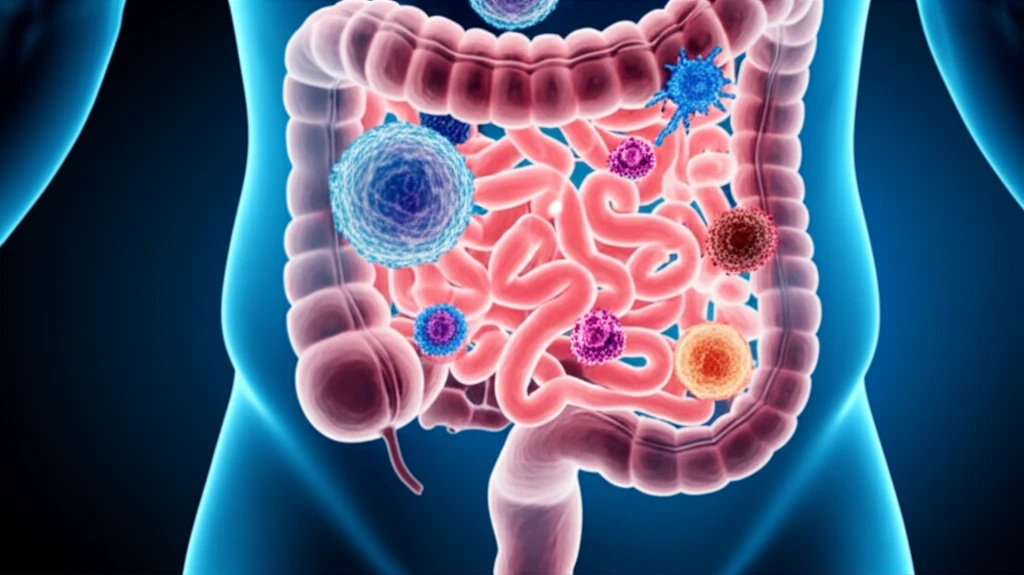
Gut Check: How Intestinal Health Impacts Lupus
"Unveiling the role of intestinal macrophages in systemic lupus erythematosus and mucosal immunity."
Our bodies are constantly defending themselves against invaders, and monocytes play a crucial role in this defense. These immune cells kick into action when pathogens attack or inflammation flares up. Once activated, monocytes migrate to different tissues, initiating both immediate and long-term immune responses, eventually turning into macrophages.
Macrophages in the gut lining, also known as mucosal macrophages, are essential for managing inflammation caused by pathogens. However, disruptions in the innate immune system have been linked to autoimmune conditions like systemic lupus erythematosus (SLE).
This article delves into the function of human macrophages in the intestinal immune system, their role in maintaining balance, and their involvement in SLE. Additionally, it examines the differences in intestinal macrophages between sexes and their impact on the development and progression of SLE.
The Gut's Defense Force: Intestinal Macrophages

The intestinal lining, comprising the epithelium and lamina propria, acts as a crucial barrier. Tight junctions tightly connect epithelial cells, forming a protective seal that prevents harmful substances from entering while allowing a small amount of bacterial products to pass through to maintain systemic immune balance.
- Classical Monocytes (CD14++CD16-): Upon activation with substances like lipopolysaccharides (LPS), these monocytes transform into macrophages or dendritic cells (DCs), producing cytokines and traveling to affected tissues.
- Intermediate Monocytes (CD14++CD16+): Implicated in cardiovascular diseases.
- Non-Classical Monocytes (CD14+CD16++): These monocytes primarily produce pro-inflammatory cytokines like TNF-α, IL-1β, and IL-6 in response to TLR agonists, potentially contributing to autoimmune diseases.
The Gut-Lupus Connection: Future Directions
The maintenance of tolerance and prevention of pro-inflammatory responses by macrophages at the intestinal mucosal site are crucial for mucosal immunity. Disrupted TLR-mediated immune responses in intestinal macrophages may significantly contribute to the development of SLE. Future research should focus on the role of sex hormones in intestinal macrophage function, gut mucosal immunity, microbial translocation, and autoimmune diseases to create more effective and targeted therapies.
